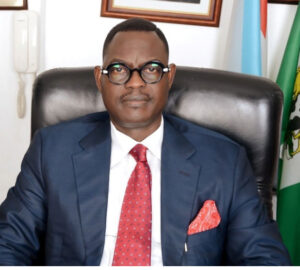
Joyce Mmereole Okoli
The Chairman of SIFAX Group, Dr. Taiwo Afolabi, emphasized the need for Nigeria to fully harness the potential of the blue economy to ensure increased employment opportunities for future generations.
Speaking at the 16th Convocation Lecture of Ladoke Akintola University of Technology (LAUTECH) on Friday, Dr. Afolabi highlighted the numerous untapped opportunities within the country’s maritime sector.
Delivering his lecture titled “Towards a Sustainable Blue Economy and Marine Development in Nigeria: Trends, Challenges, and Prospects,” Dr. Afolabi underscored the importance of developing Nigeria’s coastlines to spur significant recreational and economic activities. He noted that coastal tourism could offer substantial socio-economic benefits, especially as the government seeks to diversify the economy away from its dependence on crude oil.
“Serious attention should be devoted to the development of our coastlines by the government as this could spur huge recreational and economic activities around such localities,” Dr. Afolabi stated.
He highlighted that developing the blue economy is critical to creating a resilient multi-product economy that can better withstand fluctuations in global oil prices.
Dr. Afolabi also pointed to renewable energy as a lucrative sector within the blue economy. He noted that offshore wind energy, generated by offshore wind turbines, and solar energy for powering navigation and communication systems, are promising alternatives to fossil fuels that can reduce the maritime sector’s carbon footprint.
“Offshore wind energy is also a real and promising form of renewable energy generated by offshore wind turbines, which makes it possible to take advantage of strong ocean winds for electricity generation later exported to land where it is consumed in several economic activities. In turn, solar energy can be used in power navigation and communication ships’ systems and equipment and those of other floating structures.
However, he cautioned against several challenges, including human exploitative activities, rising insecurity, and the impacts of climate change. He stressed the need for improved maritime safety and security to support sustainable development in the sector.
The lecture was held at the A. M. Salau Senate Building (Council Chamber) of LAUTECH in Ogbomoso and attended by students, faculty, and industry stakeholders, all keen to explore the potential of Nigeria’s maritime resources.

